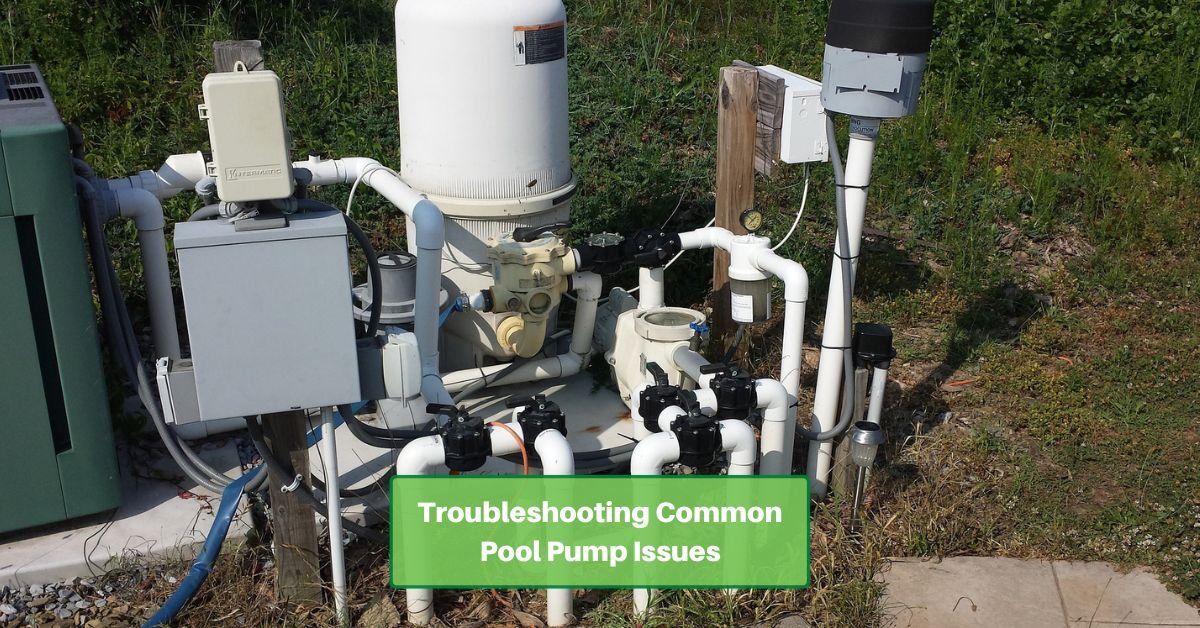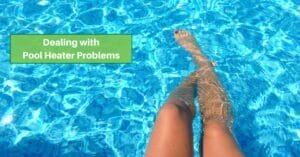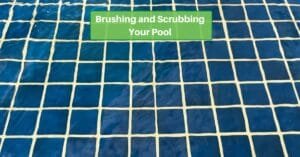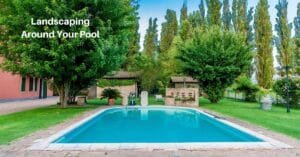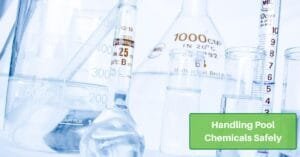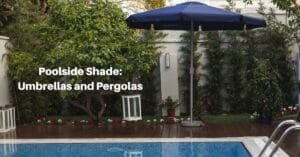As an avid gardener and a pool owner, I’ve come to appreciate the symbiotic relationship between my garden and my pool, especially the pool pump’s central role in maintaining this balance. A healthy, clean pool contributes to the overall aesthetic of the outdoor space, and the pump is the heart of the pool’s filtration system. However, common issues such as noise, leaks, and malfunctions can disrupt this harmony, leading to a less than serene backyard oasis.
In this article, I’d like to look at some common pump issues, their causes, and ways to avoid or repair them. Hopefully, you’ll learn something to keep your pool healthier, your garden more peaceful, and your stress level at a minimum!
Understanding Your Pool Pump
The pool pump is a crucial component of your pool’s filtration system. It consists of three main parts: the motor, the impeller, and the housing. The motor powers the pump, the impeller moves the water, and the housing encases these components. Together, they work to circulate water through the filter, keeping your pool clean and clear. Understanding these parts is the first step in diagnosing and fixing any issues that may arise.
Common Pool Pump Problems
Pool pump problems typically fall into three categories: noise, leaks, and malfunctions. Each issue affects the pump’s efficiency and can lead to more significant problems if left unaddressed.
Noise Issues
A noisy pool pump can turn a peaceful backyard into a less relaxing space. The culprits of excessive noise include worn bearings, cavitation (the formation of vapor cavities in a liquid), and obstructions in the impeller.
Worn bearings often result from normal wear and tear, manifesting as a loud, grinding noise. Cavitation occurs when the pump is running dry or there’s a significant restriction on the suction side, leading to a loud, rumbling sound. Lastly, debris caught in the impeller can cause a rattling noise.
To diagnose noise issues, start by inspecting the pump for any visible signs of obstruction and ensure there’s adequate water flow to the pump. Regular maintenance, such as cleaning out the pump basket and ensuring the pump is installed correctly and level, can reduce noise.
However, worn bearings indicate that the pump motor may need professional attention or replacement.
Leak Issues
Leaks in the pool pump are often due to a worn shaft seal, cracked pump housing, or damaged o-rings/gaskets. The shaft seal separates the motor from the water, and it can wear out over time, allowing water to leak through. A cracked pump housing, usually due to freezing temperatures or physical impact, can lead to significant water loss. Lastly, o-rings and gaskets, which seal connections between different parts of the pump, can dry out, crack, or become dislodged, causing leaks.
Identifying the source of a leak is crucial. Start by inspecting the area around the pump for wet spots or drips. If the leak is coming from the pump seal or housing, it may be visible as a steady drip or stream of water when the pump is running. For leaks related to o-rings or gaskets, check the connections and fittings for any signs of moisture.
Replacing a worn shaft seal, repairing a cracked housing, or replacing damaged o-rings/gaskets can often resolve these issues. While some leak repairs can be straightforward, they may require specific tools or parts. Hence, assessing whether you’re comfortable undertaking the repair or if it’s time to call in a professional is essential.
Malfunction Issues
Malfunctions in pool pumps can also manifest in several ways, impacting the overall functionality of your pool’s filtration system. Here are some common malfunctions and strategies to address them:
Pump Fails to Start
If your pool pump fails to start, it could be due to electrical issues, a seized motor, or a faulty capacitor. First, check the power supply, including the circuit breaker and any GFCI outlets, to ensure power is reaching the pump.
Next, examine the capacitor, which helps start the pump motor. If it’s swollen or leaking, it likely needs replacement.
A seized motor, often due to rust or corrosion, might require a professional assessment to determine if repair or replacement is the most cost-effective solution.
Pump Loses Prime
A pump that loses its prime is unable to move water. This is often caused by air leaks in the suction side of the pump or a clogged filter. Ensure all fittings are tight and the o-rings at the pump basket lid are in good condition to prevent air from entering the system. Clean or replace the filter to ensure it’s not restricting water flow, too.
Low Water Flow
Low water flow can result from clogged filters, blocked pipes, or incorrectly sized pumps. Regularly cleaning or replacing your pool filter can prevent clogs that reduce water flow. Also, ensure that the pump and filter are appropriately sized for your pool’s volume to maintain optimal circulation.
Preventive Maintenance
Preventive maintenance is critical to avoiding pool pump issues before they start, ensuring your pool remains tranquil and inviting. Here are essential maintenance tips:
- Regular Cleaning: Keep the pump basket and filter clean to prevent obstructions that can cause noise, reduce efficiency, or lead to malfunctions.
- Inspect Regularly: Periodically check the pump and its components for signs of wear, leaks, or damage. Early detection can prevent more significant issues down the line.
- Proper Winterization: If you live in a climate where pools are closed for the winter, properly winterizing your pump can prevent freezing damage and extend its lifespan.
- Professional Servicing: Consider having your pool pump professionally serviced annually. A professional can detect issues you might overlook and ensure your pump operates efficiently.
By addressing noise, leaks, and malfunctions promptly and adhering to a regular maintenance schedule, you can extend the life of your pool pump, ensuring it continues to support your pool’s ecosystem effectively. This proactive approach saves you money in the long run. It also contributes to the peaceful and enjoyable atmosphere of your backyard garden and pool area. Remember, the pool pump is the heart of your pool’s filtration system; keeping it in top condition is essential for a clear, clean, and serene pool all year round.

